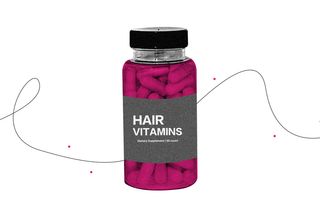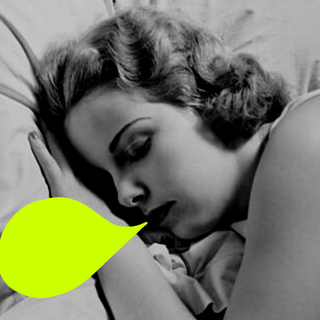
Untrending: Biotin Hair Supplements Don’t Speed Up Hair Growth
Excess biotin is flushed from the body in urine, not transferred straight to our hair as supplements promise.

In Untrending, we side-eye the latest fads so we know what we’re getting ourselves into — and what (if anything) we’re getting out of them.
Long, luscious, hair has long been a beauty ideal Indian women are judged against. And with the global influencer revolution, such hair became a global obsession — with videos of shiny, strong hair stoking a frenzied need for similar hair and opening up a massive market for supplements that promise strong, fast-growing, and beautiful natural hair.
One of the first groups of influencers to both recognize and ride the sponsored content wave regarding this were the Kardashians (of course). And companies that make these supplements — SugarBear, Hairfinity, Halo Beauty, and more — rely on influencer marketing in order to make sales.
This is how hair vitamins became a modern-day beauty trend — even though these supplements don’t do much (or anything at all) to help hair growth. And even as many have questioned the efficacy of some of the claims made by these large-scale brands. A Bustle journalist reported no difference in her hair growth after two months of using hair supplements, and a Buzzfeed investigation stated that one of the major players in the hair supplement industry — Sugarbear Hair — had grossly misrepresented the measures of ingredients present in the supplement. In India, the dietary supplements (nutraceuticals) industry is regulated by the Food Safety and Standards Authority of India. But, globally, these diet supplements are not regulated/held at the same standard as the pharmaceutical industry, which allows for a lot of leeway on how these products are marketed.
The science behind hair supplements relies on its most common ingredient — biotin. A member of the Vitamin B family, the body uses biotin to convert food into energy. Apart from that, biotin also boosts hair and nail health, supports healthy pregnancies, and manages blood sugar levels. One can receive the required amount of biotin via a healthy diet consisting of meat, eggs, dairy, sweet potatoes, spinach, and broccoli. The logic behind taking additional biotin supplements is that they improve the body’s keratin infrastructure and thus, leads to long/strong hair and nails. But that’s actually an incorrect assumption.
Related on The Swaddle:
“A lot of people mistake [biotin] as something that is good for hair thinning, but biotin deficiency causes hair breakage and not hair loss,” Dr. Rick Mizugachi, a cosmetic dermatologist, told Byrdie.
“Honestly, there is very little well-researched data on supporting that biotin improves hair growth in those who are not deficient,” Dr. Jennifer Herrmann added.
The little research that proves biotin prompts quick and extra growth of shiny hair is funded by corporations that sell biotin supplements, and multiple dermatologists state that excess biotin doesn’t do much for a healthy body; additional biotin is only helpful when an individual has a biotin deficiency. This deficiency is so rare that, according to the National Institutes of Health, U.S., a severe biotin deficiency has never been reported.
Since the lack of biotin in a human body is rare, there’s no regulation specifying limiting the amount of biotin that goes into the body. And experts differ widely in their recommendations. The Mayo Clinic says that one needs 30-100 micrograms of biotin daily to remain healthy. Dr. Richard Scher, a dermatologist, tells Huffington Post, that the daily recommended dose is 2500 micrograms.
This lack of consensus and regulation allows hair supplement brands to overload their product with extreme amounts of biotin. SugarBear hair adds 5000 micrograms of biotin in its supplements. Closer to home, Himalaya Organics Biotin adds 10,000 micrograms of biotin per tablet. According to what Jessica Cording, a dietitian tells Allure, the body will simply pee out the biotin it doesn’t need, as biotin is a water-soluble vitamin. Biotin overdoses, like biotin deficiencies, are extremely rare. But, biotin supplements do lead to false results in hormone tests, cardiac health tests, and other lab tests that utilize biotin technology to bond with proteins. This makes it imperative to stop taking them three days before getting any test done.
If there is reason to worry about thinning, weak hair, it is preferable to visit a dermatologist rather than taking supplements that aren’t proven to cure anything. There is a chance that hair-problems like shedding, thinning, and breakage may need dermatological interventions. However, no supplements can make hair grow faster — only genetics can do that. One can, however, promote optimum hair growth via a balanced diet, exercise, and trimming split ends. This may involve a large lifestyle change for some, but hey, it’s a lot better than flushing away expensive vitamins each month.
Aditi Murti is a culture writer at The Swaddle. Previously, she worked as a freelance journalist focused on gender and cities. Find her on social media @aditimurti.
Related


Arrogance Is Contagious, Study Finds
